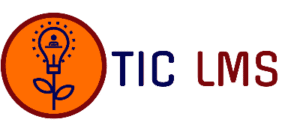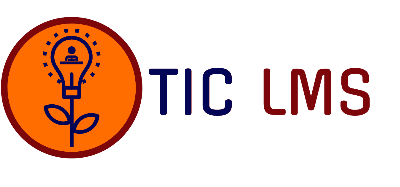2020 Government
- A constitution is a legal document _________
- A. drawn up by lawyers
- B. enacted by military decrees
- C. forming the basis upon which a government rules the country
- D. only likely to succeed in countries where there is union government
- A government in which control of ultimate power is by a few who rule in their selfish interest is classified as _________
- A. an oligarchy
- B. a dictatorship
- C. an aristocracy
- D. a monarchy
- The judicial organ of government is the body which _________
- A. implements the law
- B. makes the law
- C. punishes lawbreakers
- D. interprets the law
- Which of the following was not established by the 1979 Nigerian constitution?
- A. Police Service Commission
- B. National Universities Commission
- C. Federal Electoral Commission
- D. National Population Commission
- Rates are generally collected in Nigeria by ________
- A. the State Ministry of Finance
- B. the Department of inland Revenue
- C. the Emirate of Traditional Council
- D. the Local Government Council
- In a democracy, sovereignty is in _________
- A. the community
- B. public officials
- C. judges
- D. the Head of State
- Which of the following is a good example of a confederal state?
- A. Nigeria
- B. ECOWAS
- C. Switzerland
- D. USA
- A bill that applies to the whole population and is intended to promote the general welfare is called _________
- A. a private bill
- B. a decree
- C. an appropriate bill
- D. a public bill
- Fascism developed in________
- A. France
- B. Germany
- C. Italy
- D. China
- The theory of separation of powers was first time clearly formulated by __________
- A. Jean Bodin
- B. Jean Austin
- C. Baron de Montesquieu
- D. Lord Bryce
- A system of government in which power derives from total control of the instruments of force is called ___________
- A. monarchy
- B. oligarchy
- C. capitalism
- D. fascism
- The British Government revoked the charter of the Royal Niger Company and took over the direct administration of Nigeria in _________
- A. 1861
- B. 1900
- C. 1906
- D. 1914
- The Fundamental Objectives and Directive Principles of State Policy in the 1979 constitution do not include _________
- A. democracy and social justice
- B. federal character and inequality
- C. concentration of wealth and provision of maximum welfare
- D. national integration and ethnic loyalty
- The founder of the Universal Negro Improvement Association was ________
- A. Casey Hayford
- B. Herbert Macaulay
- C. Marcus Garvey
- D. W. E. B, DuBois
- A characteristic feature of communism is __________
- A. Free enterprise
- B. liberal democracy
- C. dictatorship
- D. multi-party system
- Africans were first elected to the legislative council in British West Africa in _________
- A. Ghana
- B. Sierra Leone
- C. The Gambia
- D. Nigeria
- When a state is subject to no other authority, it is said to be _________
- A. powerful
- B. legitimate
- C. authoritative
- D. sovereign
- While pressure groups aim at influencing government decisions, the primary aim of political parties is to ______
- A. promote the welfare of their members
- B. execute particular programmes
- C. influence legislation in order to benefit their members
- D. control political power
- In the traditional Hausa-Fulani political system, political authority was vested in the ___________
- A. Emir
- B. Talakawa
- C. Alkali
- D. Emirate Council
- Southern Nigeria was divided into Eastern and Western provinces for administrative purposes in _________
- A. 1935
- B. 1937
- C. 1939
- D. 1941
- Within the United Nations, the vote power is exercised in __________
- A. UNESCO
- B. WHO
- C. the General Assembly
- D. the Security Council
- A set of internalized norms which guides political action is called ________
- A. power
- B. value
- C. law
- D. symbol
- A condition for judicial independence is the appointment of judges by the __________
- A. Civil Service
- B. Judicial Service Commission
- C. Law Review Commission
- D. Code of Conduct Bureau
- Which of the following is notassociated with local government elections?
- A. Constituency
- B. Ballot Box
- C. Electoral Officer
- D. Ward
- Warrant Chiefs were appointed to __________
- A. Prevent tribal wars
- B. supervise native courts
- C. decide divorce cases
- D. take charge of local administration
- The application of the rule of law may be constrained by ________
- A. securing the tenure of office of judges
- B. insulating judges from partisan politics
- C. employing men of proven integrity as judges
- D. invoking emergency powers
- The highest court in Nigeria before 1963 was the _________
- A. Supreme Court
- B. High Court
- C. Judicial Committees of the Privy Council
- D. Court of Appeal
- A feature unique to General Murtala Muhammed’s Supreme Military Council as compared to that of General Yakubu Gowon was the _________
- A. inclusion of the civilians as members
- B. exclusion of military governors from the council
- C. inclusion of the chief justice as a member
- D. the exclusion of the Inspector General of police from the council
- In the First Republic, Nigeria was very reluctant to have meaningful interaction with ________
- A. Italy
- B. the Soviet Union
- C. the United States of America
- D. Germany
- The Gulf War of 1990 is an indication that the U. N. O. is unable to _______
- A. ensure free world trade
- B. stop colonialism
- C. control armament
- D. ensure permanent world peace
- The simple plurality electoral system is often criticized because _________
- A. the ruling party may lose the election
- B. the winner may not poll an absolute majority
- C. it works against all opposition parties
- D. it is easy to rig
- Which of the following was the last to win independence from colonial rule ?
- A. Cote d’Ivoire
- B. Algeria
- C. Tanzania
- D. Angola
- Nigeria’s non-aligned policy means that she will _________
- A. have nothing to do with the superpowers
- B. not take sides in international issues based on ideological considerations
- C. avoid having any dealing with any country with ideological learnings
- D. relate only with member countries of the Non-Aligned movement
- The charter of the United Nations was drawn up in ________
- A. New York
- B. San Franciso
- C. Washington DC
- D. Los Angeles
- The idea of making the civil service permanent, neutral and anonymous is to _________
- A. make civil servants a functional elite
- B. prevent opposition to government
- C. ensure loyalty and support
- D. enhance efficiency in administration
- The delineation of constituencies is a major duty of the __________
- A. electoral commission
- B. boundary commission
- C. national assemblies
- D. political parties
- A meeting of the legislature is usually brought to an end with __________
- A. an adjournment
- B. a prorogation
- C. a dissolution
- D. suspension
- The economic basis of feudalism is __________
- A. agriculture
- B. capital
- C. trade
- D. slavery
- NEPAD was adopted during the OAU summit held in _________
- A. Tunis
- B. Lusaka
- C. Cairo
- D. Abuja
- The Premier of Western Region immediately after independence was _________
- A. Chief Obafemi Awolowo
- B. Chief Ladoke Akintola
- C. DR. M. A. Majekodunmi
- D. Ahaji D. S. Adegbenro

